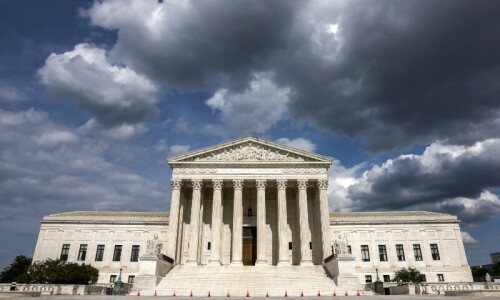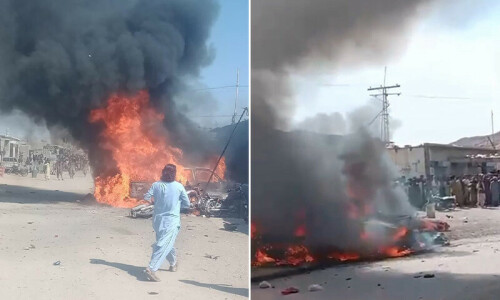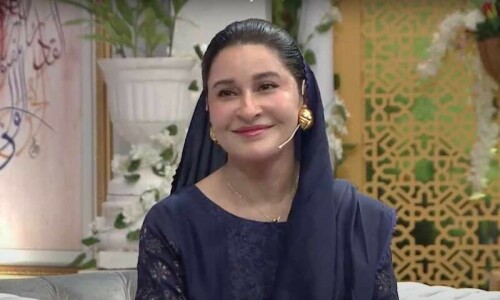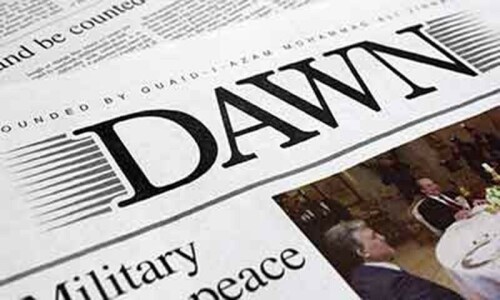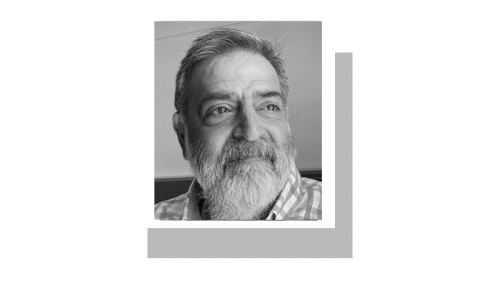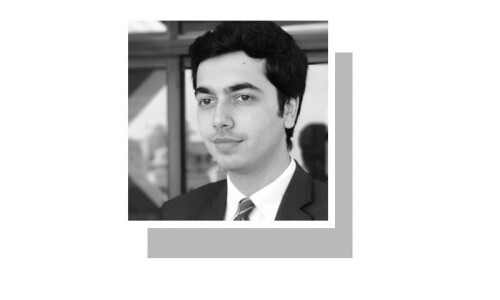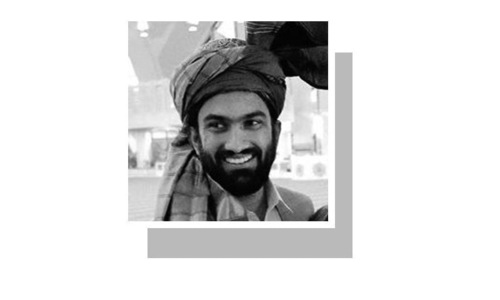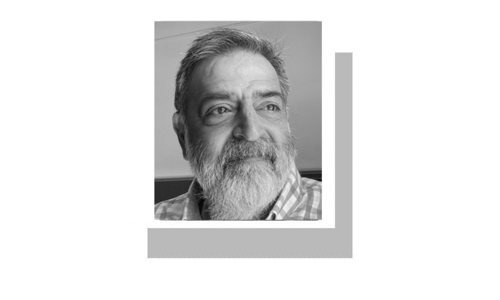No delay in polls
MR Shaukat Aziz’s ‘disclosure’ in his Sunday’s press conference that general elections could be postponed by a year points to the uncertainty that marks the political scene. On second thoughts it seems, the prime minister announced on Monday that polls would be held on time. While the government makes up its mind, we may point out, as we have done before, the continuation of a state of ambiguity since March 9 has served to put the nation in limbo. Now delaying the polls will only intensify the political confusion. The implications of the judgments delivered by the Supreme Court before Nov 3 may be behind us to the extent they concerned the dual office issue, but the gravity of the larger political and constitutional crises prevailing at the moment is independent of those judgments. In his speech to the nation following the enforcement of the state of emergency, President Pervez Musharraf spoke of the problems that had led him to take this extreme action, and they included, besides judicial activism, the law and order situation created by terrorists and religious extremists, who were challenging the state’s writ. It is not clear in what way a postponement of the general election will help the government crush the insurgency in Fata and Swat.
The insurgents are an uncompromising lot. Besides a loose commitment to the enforcement of Sharia, they have no precise goals, and often it appears they are waging war on Pakistan’s state apparatus because there is no other way in which they can make themselves felt. They are well armed, the mountainous terrain and the porous border with Afghanistan help them, their supply lines are intact, and that is the reason why they have shown extraordinary resilience and tenacity. In a nutshell, their ability to fight on is independent of the government’s constitutional nostrums. On the other hand, the military-led government will now be hard put to show results and convince the world and the Pakistani people that the enforcement of emergency had paid dividends and helped it make gains against the militants. This appears doubtful.
By coming down hard on the liberal elements in society, the military has denied itself a source of strength in the war on the religious extremists. The round-up of politicians, leading lawyers and human rights activists will cast the regime in a negative image, and the world would not be wrong in coming to the conclusion that the generals had used the war on terror as a ploy to strengthen their stranglehold over the country. Because of the gravity of the situation we demand that the emergency be lifted at the earliest, the government should give a deadline within which the purposes for which the emergency was proclaimed will be achieved, that notwithstanding the curbs on the media, political activity will not be curtailed, and the general election will be held as originally planned — in January next. Only a government deriving a popular mandate can pull Pakistan out of the bog and maintain its unity and integrity.
Unjust denial of information
GENERAL Musharraf would know as well as anybody else that access to information is every citizen’s right. So there is no question about him, or his government, ‘giving’ the country a free media as he believes. It is not for him to take this freedom away either. The government’s arbitrary blocking of all television news channels — including the foreign ones — and putting curbs on the press can thus not be justified. It is clearly an attempt to coerce media organisations to toe the official line. But are TV viewers foolish enough to buy into it? One cannot turn the clock back to the time when PTV was the only source of information — or disinformation. In today’s high-tech world when information can be found on the Internet or obtained through cell phones the move against television channels will be counter-productive. Besides how long can the government keep the plug pulled on TV channels? Gen Musharraf must realise how denial of information can contribute to further unrest, fear and rumour-mongering of the worst kind. Since the channels were blocked, all kinds of rumours have been flying that are discomfiting to the public as well as the stock markets, as we saw on Monday.
The government appears willing to go all out in its efforts to silence dissent. The amendments to the Press, Newspapers, News Agencies and Books Registration Ordinance and the Pemra law prescribe draconian punishment for papers and TV channels not complying with instructions that are ambiguous and already covered by existing laws. Thus why should the government want to arrogate to itself the power to decide what ‘defames or brings into ridicule’ the head of state or members of the armed forces/government? Obviously to assume arbitrary control over the media. In the case of television it proceeded to act even before the amendments were promulgated — something quite unprecedented.
To avoid an ugly confrontation, all TV channels must be put back on air forthwith. A free and independent media is a must, no matter what the nation’s on-going crisis at the time is. The media is well aware of its responsibility of providing people with information. It must be allowed to do its job without fear of reprisal or attack. If it violates the law it is for the court to sit in judgment. History has shown that the press in Pakistan has withstood all kinds of intimidation and come out with flying colours. Independent television — a new phenomenon in the country — can be expected to do the same.
Interpreting a malady
AIDS is no longer the silent killer, relegated to foreign shores as an affliction of more liberal societies. It has crept up on us and today Pakistan has entered the concentrated HIV/AIDS epidemic phase. Statistics declare that there are over 100,000 cases of the disease in the country. Alarmingly, more than 40 per cent of these patients belong to Sindh, which include drug abusers, sex workers, sailors and long distance lorry drivers. Also, the ratio of males infected with the syndrome is far higher than women. Experts believe that lack of knowledge of the disease and its mode of transmission are amongst the primary causes of its spread. A marked rise in prostitution and unsafe blood transfusions have not helped the cause of AIDS prevention.
Hence, the recent launch of a media forum on AIDS is a positive step as generating awareness is integral to prevention and also part of the cure. The forum’s aim is to sensitise the masses as well as policymakers to monitor the virus and identify precise strategies to combat it. It will involve media personnel, which will strengthen the capacity of both government and civil society structures to create an environment conducive to prevention plans and campaigns. For example, the awareness commercials on television are too discreet and coy for the uneducated layman and given the causes of the malady, they should be permitted to highlight areas otherwise considered taboo. But the battle must extend beyond compiling numbers and pamphlets. The most challenging aspect is the journey from AIDS being a four-letter word to becoming another disorder, so that patients can come out and work with health officials and NGOs to fight its spread. This will also bolster the silent sufferers who cannot find the courage to seek treatment, and become another ‘disgraced’ statistic.
Punjab and the national economy
IF politics proceeds on its promised course, there is likely to be a considerable rearrangement in the distribution of power among different political groups. This will have profound implications for the economic development of Punjab, Pakistan’s largest province in terms of both population and the contribution it makes to the national economy.
Given that, it is important that all players in the political game must recognise that maintaining the economic momentum picked up in recent years by Punjab is of vital national interest.
Today Punjab is a significant contributor to the national economy. By my estimate, it contributes a slightly higher share to the national output (60.1 per cent) compared to its share in total population (57.4 per cent).
The government of Punjab estimates that in the financial year 2007, the province accounted for 61.3 per cent of wholesale and retail trade, 57 per cent of agriculture and 58.2 per cent of industrial value added in national output. Overall, Punjab contributes more than 50 per cent to the country’s GDP in almost every sector in the national accounts. And yet much of the economic power is wielded by the federal government.
As the current chief minister of the province put it in his ‘vision 2020’ statement issued in 2005, the federal government is “totally in-charge of fiscal and monetary policies; it frames the tax policies, trade policies and also plays an important part in regulatory environment of firms and companies”. Under the current order of things, the provincial governments operate within highly circumscribed space. In fact, this space is even more limited than that envisaged in the Constitution of 1973. That document provided much greater autonomy to the provinces than is currently allowed by those who wield power today.
There was a political reason for Punjab’s remarkable economic performance over the last several years when its total output expanded at a rate significantly higher than the increase in the national product. It happened because political power in Islamabad and Lahore resided in the same set of hands. That has not always been the case and may not be the case in the future.
The sharp exchanges between Benazir Bhutto and the current chief ministers of Punjab and Sindh following the unfortunate incident of Oct 18 do not augur well for relations between the centre and the federating units if politics proceeds on the course on which it is travelling at this time.
The tension between the centre and Lahore that developed when governments belonging to different parties assumed power in these two places in 1988 caused considerable economic harm not only to the economy of the province. That particular episode in the country’s history also did a lot of damage to the national economy.
Economists now believe that it is important to bring the government as close as possible to the people it serves. In large federating systems, this means the grant of considerable functional autonomy to the federating units. It also means the creation of a system of local government that passes power on to people’s representatives.
It is interesting to note that the way General Musharraf has governed the country in the last eight years is to accumulate considerable economic and political power in his hands while, at the same time, establishing a system of local government to which considerable power has been devolved. The provinces suffered in this system of governance.
The reason Punjab was able to function with a fair amount of autonomy was not because the system allowed it but because of the very close links between the province’s chief executive and the leader of the party that provided President Musharraf the main base of political support. That situation may not survive.
It is important to recognise that geography has placed Pakistan in a unique situation. It has on its four sides, centres of growing economic activity and potential. China, to Pakistan’s north, is the largest country in the world in terms of population. It is also the world’s fastest growing economy.
To the east is India, the second billion plus country in the world and also one of the world’s most rapidly growing economies. To the west, are the oil-producing and exporting countries accumulating large amounts of capital surplus to their needs. And to the northwest are the countries of Central Asia with enormous resources and, once they are able to resolve their political problems, enormous economic potential.
It is inevitable that when economies grow rapidly they trade with one another. The four areas of immense economic activity in Pakistan’s immediate neighbourhood will also develop trade and exchanges among themselves. A significant proportion of this will be the movement of goods and commodities and a good part of this could flow through Pakistan.
There is money to be made in becoming the centre of transit trade but that will require investments in a number of service activities — warehousing, trade financing, servicing of vehicles, provisions for those plying the trade etc. These involvements are better done by the private sector but within the regulatory environment created by the provincial governments. Pakistan will benefit only if politicians operating from different centres of power are able to work together.
The only viable way of approaching the dangers inherent in the way the political system operated in the past is to have the politicians contending for power reach a consensus on the distribution of responsibilities among the three tiers of government — the governments at the federal, provincial and local levels. The arrangements that need to be worked out should be even more generous than those incorporated in the original 1973 Constitution.
One important change that needs to be made is to allow greater authority to the sub-national governments in two areas — trade and finance. While the governments below the federal level have some room available to them in the area of finance, they have none in the area of trade. And yet it is trade that will play an important role in determining the economic future of the country’s four provinces.
Unlike most other large federal systems, all Pakistani provinces and territories have international borders; Punjab and Sindh with India, the NWFP with Afghanistan, Balochistan with Afghanistan and Iran, and the Northern Areas with Afghanistan and China.
There is considerable informal trade between these federating units and the countries they border. This trade is informal since national trade policy has put foreign relations above provincial economic considerations. One way of regularising this trade would be to allow a greater role in this area to the governments below the federal level.
Before a new political order emerges, it would be useful if a consensus could be reached among those who are likely to wield power in different places to work for the national good, not just for their narrow interests.
OTHER VOICES – European Press
The science of windmills
THE thoughts of Dr Peter Childs of the University of Limerick add to suspicions that the country is not preparing itself well for a future that will require that a significant section of the workforce is technologically skilled.
For one reason or another, students who are blessed with the ability to pursue science and maths-based courses are shunning them. Consequently, standards are falling, and students who are ill-equipped are being admitted to courses that are way beyond their capabilities. For many, failure is on the curriculum from the very start. It may be that students who have aptitude but little enthusiasm for science and maths lack a clear picture of where such a career might take them. Vague talk about a “knowledge economy” and rewards for ill-defined and unspecified skills some time in the future is unlikely to persuade a 17-year-old boy or girl that science and technology are the way to go. Perhaps today’s youngster, faced with a choice between what C.P. Snow called the ‘two cultures’, needs a clearer picture of the future being envisaged by government planners, industry and our educators.
Let’s hope it is a shared vision. One splendid fusion of the two cultures has won an international award for a small country school in Co Kilkenny… The architects of our future could probably learn a thing or two from the inspirational people at Scoil Naomh Fiachra, unless they are irrevocably committed to tilting at windmills. — (Nov 2)
Irish Independent
The ugly side of sport
WHEN Ben Johnson was stripped of the gold medal he won in the 100-metre sprint at the South Korea Olympic Games in 1988 because he failed a doping test, the sport world was shocked. That incident will be remembered…from the euphoria created after the world record had been shattered to the dismay that the winning athlete had used illegal substances to enhance his performance.
…Doping scandals have rocked cycling… and…top athletes were suspended after being caught taking banned substances. This year, even…Formula One was hit by a spy story which cost McLaren the constructors’ title. More recently, star runner Marion Jones admitted use of illegal substances and, last Thursday, it was the turn of tennis star Martina Hingis to announce that she is accused of testing positive for cocaine...
Of course, in their majority, athletes are loyal to the sport they participate in…it is the few who give sport a bad name. People still go to stadiums…But nowadays many question the regularity of the events...
Sport authorities try hard to clean up sport. Punishments for those who do not obey the rules have been made harsher. Athletes have been disqualified…officials have been suspended. This has not been enough…
The thing is: do these officials and athletes feel satisfied, knowing in their heart of hearts that the victory they are celebrating was not obtained fairly? — (Nov 3)
The Malta Independent
| © DAWN Group of Newspapers, 2007 |

















